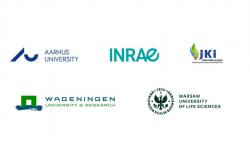As part of its preparations for the African Cup of Nations 2025 and the 2030 World Cup, Morocco is launching a vast modernization of its infrastructure. However, this transformation arouses concerns, particularly with regard to expropriations. Many families find themselves moved, often without adapted rehousing solutions and with compensation deemed insufficient.
With a view to hosting the 2025 African Cup of Nations and participating in the joint organization of the 2030 World Cup, Morocco has launched a large operation to modernize its infrastructure nationally. This movement of transformation, carrying growth and visibility on the international scene, nevertheless generates tensions, especially around the delicate questions related to expropriations.
Projects are multiplying: road construction, building new stages, extension of the rail network, urban development programs … To make these initiatives concretize, the authorities mobilize large areas, belonging to both public domain and private owners. This land policy has the eviction of many families, often under conditions deemed inequitable.
Read also: Foot/CAN U20 (Egypt-2025): Morocco in group B with Nigeria, Tunisia and Kenya
In Casablanca, in particular in the old medina, many inhabitants express their dissatisfaction with the lack of consultation around expropriation projects. According to the media, the rehousing solutions offered are deemed little suitable, especially when it comes to travel to distant areas like Sidi Hajjaj, located about twenty kilometers. This type of rehousing deeply disturbs the daily life of the families concerned, moving them away from their workplaces, schools and their usual environment.
The total lack of support devices for tenants, often installed for several decades in modest rent housing, sometimes less than 1,000 dirhams, without the possibility of compensation is also to be deplored. Indeed, the case of Casablanca is not isolated. In Rabat, the L’Océan district is also affected by a large restructuring plan, which arouses the same oppositions. These tensions put the debate on the front of the scene around the legal framework of the expropriation, in particular law 7/81. Promulgated in an ancient context, it is today largely considered to be unsuitable by many specialists in law and town planning.
Already in 2018, the administrative slowness linked to these procedures had repelled three years the commissioning of the high -speed line connecting Tangier to Casablanca. Other major projects have also suffered from these blockages, generating considerable additional costs for the state.
A proposal for a legislative reform had been advanced in order to review several provisions, in particular those relating to legal compensation and deadlines. However, this initiative has never been adopted. According to law professionals, the majority of disputes before administrative courts concern expropriations. The procedures are long, complex, and often a source of injustices. The compensation proposed do not correspond to the realities of the current market, being based on obsolete assessments inherited from an old system.
In addition, the amounts are determined by local or regional commissions, bringing together representatives of several ministries (interior, finance, agriculture, equipment, etc.), which rely on the average of past transactions. These references are often biased, because influenced by value sub-declarations.
Beyond compensation deemed insufficient, the legal period of two months for the execution of expropriations is also the subject of criticism. Many believe that this period of time is too short to allow the people concerned to reorganize, find accommodation or defend their rights. It is therefore essential to consider an extension of this period to offer a fairer and more reasonable transition.








